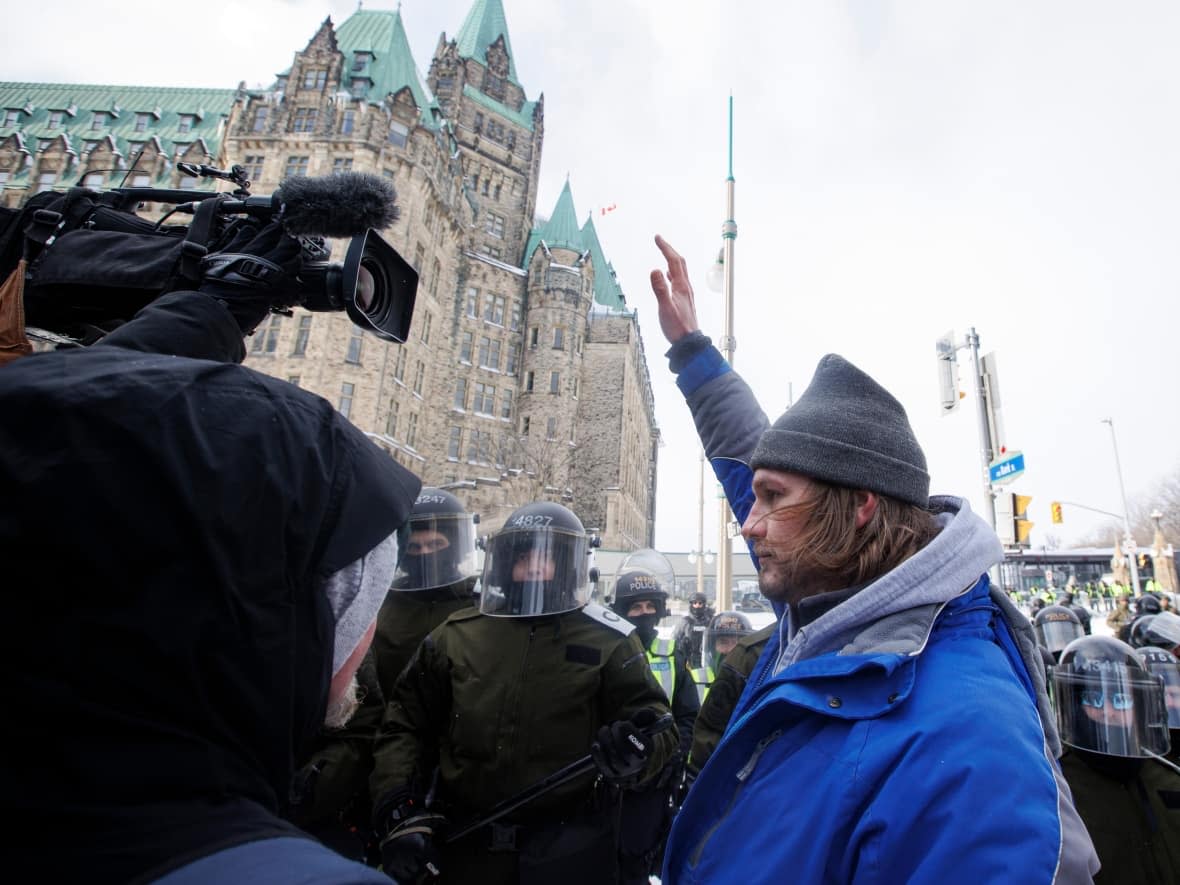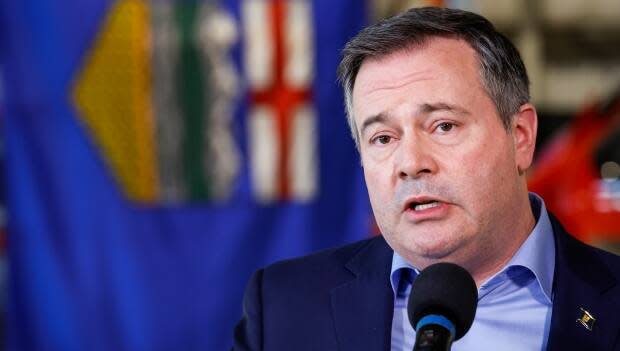Trudeau aide's notes detail call with premiers just hours before Emergencies Act invoked

Handwritten notes from one of Prime Minister Justin Trudeau's top advisers are shining a light on conversations that took place between the federal and provincial governments just hours before Ottawa announced it would invoke the Emergencies Act to end a series of anti-pandemic measure protests.
A collection of deputy chief of staff Brian Clow's notes were entered into evidence Thursday before the Public Order Emergency Commission, which is investigating the federal government's decision to trigger the never-before-used law on Feb. 14. The notes cover Trudeau's call with the premiers hours before invoking the Emergencies Act.
The Emergencies Act requires the federal government to consult with the provincial and territorial premiers before triggering its emergency policing powers. The quality of those consultations has been raised as an issue at the inquiry already.
According to Clow's notes, the premiers weighed in with various views.
He wrote that then-Alberta premier Jason Kenney described the situation in Coutts, Alta, telling the room that intelligence showed a hardcore, violent group was ready to die for the cause.
For two weeks, anti-COVID-19 protesters used heavy trucks and other vehicles to block a major commercial access route between Coutts and the U.S.
Clow wrote that Kenney said he didn't "quibble" with the act's use but felt there were other ways to resolve the problem.
The call happened as police in Alberta were in the midst of trying to bring the blockade to an end. They arrested some protesters, seized weapons and ammunition and negotiated with the remaining protesters to get them to leave the area.
In an interview with the National Post Thursday, Kenney confirmed some details from those Feb. 14 meeting notes, saying that while he opposed the use of the act, he was prepared to defer to the provincial government in Ontario if it felt it would help end the protests in Ottawa.

According to the notes, British Columbia Premier John Horgan said he supported the move but feared bringing in emergency powers would embolden the demonstrators.
"I do worry [about] too heavy of a hand," Horgan said on the call, according to Clow.
The notes say Manitoba Premier Heather Stefanson and Saskatchewan Premier Scott Moe opposed the use of the Emergencies Act and worried about the move inflaming the protests further. Clow wrote that Nova Scotia Premier Tim Houston also was worried about provoking protesters.
The notes say Quebec Premier François Legault told Trudeau and his fellow premiers that he strongly opposed using the Emergencies Act, while New Brunswick Premier Blaine Higgs said his province had been able to handle the protest and he didn't want the act to apply to in New Brunswick.
Ontario Premier Doug Ford told the call he strongly supported the use of the Emergencies Act, according to Clow's notes. Newfoundland and Labrador Premier Andrew Furey and P.E.I. Premier Dennis King also expressed some support for its use to handle the protest that gridlocked parts of Ottawa for three weeks.
Military is 'last resort,' PM tells call
According to Clow's notes, Northwest Territories Premier Caroline Cochrane wanted to be sure the armed forces wouldn't be called in.
"I really don't want to see bloodshed," she said, according to the notes.
Trudeau reassured the premiers that the military was a "last resort," the notes say.
The Emergencies Act requires that all provinces "in which the direct effects of the emergency occur" be consulted before the act is invoked.
Counsel for the province of Saskatchewan argued during opening submissions before the Public Order Emergency Commission that the federal government already had decided to invoke the act before the call on Feb. 14.
"The call was not so much about consulting as it was about telling," said lawyer Michael Morris.
The provincial government of Alberta shares that view.
"Alberta's views were only asked for after the decision was apparently made, and they were basically ignored," said lawyer Mandy England.


